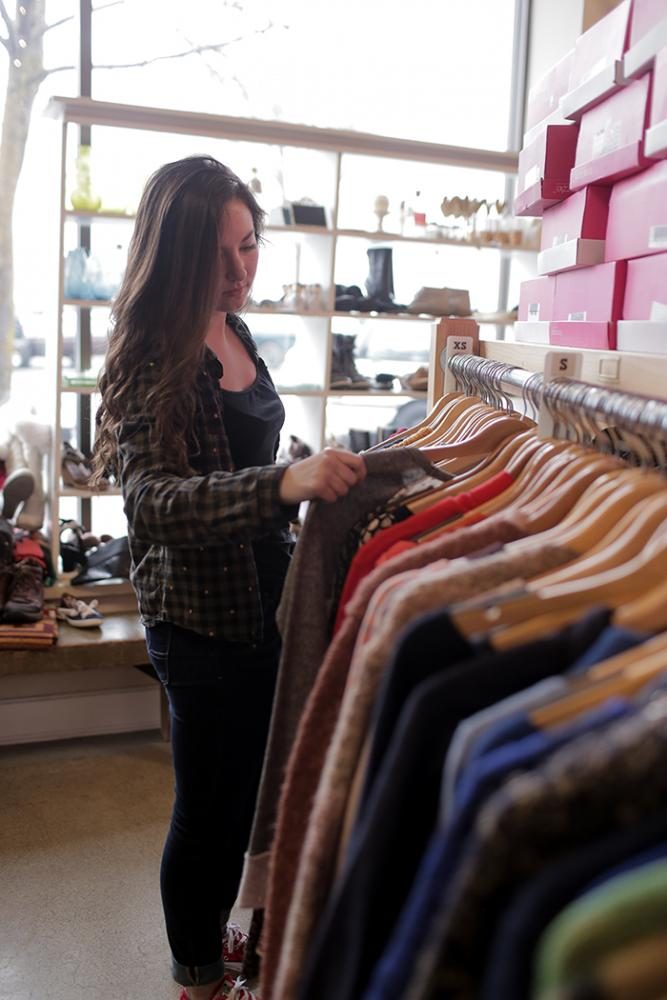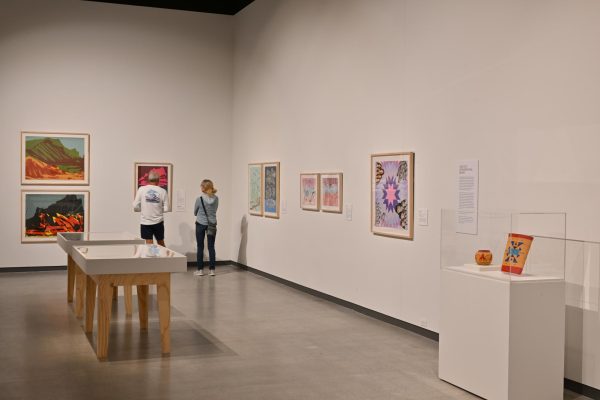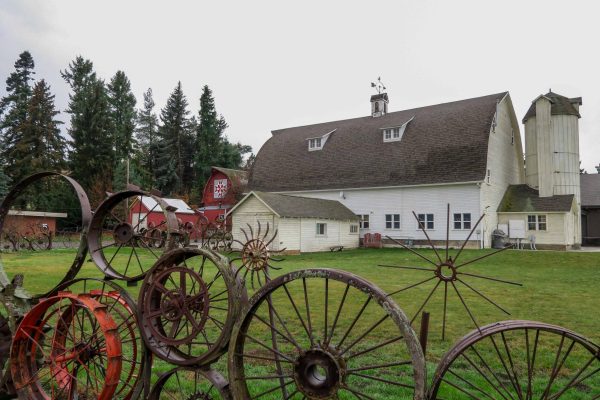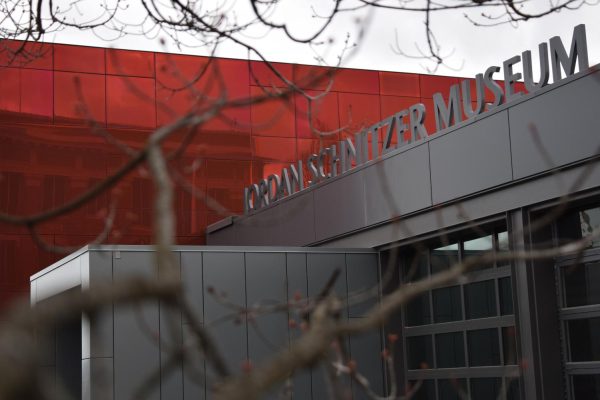One-of-a-kind vintage
March 30, 2017
Located right on Main Street in downtown Moscow, The Storm Cellar is filled with unique thrift and vintage clothing, as well as shoes and accessories, home goods, gifts and stationary.
Austin Storm, owner of the Storm Cellar, explained that in his store, instead of the typical thrift shop experience where customers look through racks and racks of inventory and eventually find a single treasure, he aims to condense all that searching so that everything in the store is compelling.
“Instead of looking for that one gem,” Storm said, “you are looking in a bunch of pre-selected gems that particularly work for you.”
Unique finds such as Louis Vuitton purses, Jimmy Choo shoes and one-of-a-kind vintage designs are what makes running a thrift store exciting and satisfying, Storm said. Because there is limited access to retail stores in the area, he said thrift shopping can be a great option for those who are looking to express themselves and wear name brands that no one else in town will have.
“I love that we are encouraging people to express themselves in their own diverse aesthetics,” Storm said.
Alongside his wife, Storm founded The Storm Cellar eight years ago, paying homage to their last name. As newlyweds, the two decided to create a new opportunity for themselves and give their dream, owning a storefront in Moscow, a chance to flourish.
“[Founding the store] was kind of about that regret minimization,” Storm said. “If we do it now and it fails, then that’s fine and we haven’t messed up our futures, but if we don’t do it then we might always wonder, ‘what would have happened if we had started that?’ ”
Storm came to the area for school before he met his wife, and immediately was attracted to the college town’s diversity.
“I just fell in love with this area,” Storm said. “And I love Moscow in particular because it has a great mix of that small-town feel with a little bit of that cosmopolitanism that the [University of Idaho] brings.”
During the business’s first year, Storm set up shop in a much smaller “tester” location, but soon realized the business would be successful. The couple then moved to The Storm Cellar’s current location where there was more space to expand their inventory.
As for the location’s interior aesthetic, “we wanted [The Storm Cellar] to feel like a thrift-Anthropology,” Storm said.
In the beginning, Storm was worried there would not be enough inventory brought into the store to be sold, and that he would have to take regular buying-trips to gather clothing. However, today, the store sells apparel from more than 5,000 active consigners and he only needs to take those buying trips for fun, he said.
As for the whole consignment process, consigners can bring in clothing and accessories daily to the store. The staff then sorts through the items and takes what they think will sell well. Once an item is sold in the store, 50 percent of the earnings are given back to the previous owner, Storm said.
In this way, shopping at thrift stores can help to keep money circulating within the Moscow economy.
“As opposed to shopping at a national store where most of the money is going out of the local economy,” he said, “the vast majority of the money made [at The Storm Cellar] stays local.”
The benefits of shopping for clothing and other previously owned goods even extend to the environment. Storm said textiles make up a significant percentage of annual landfill waste, so by reusing clothing items, the life of these textiles can extend, keeping them out of the ever-growing waste stream.
“So anything that we can do to preserve the life-span of used clothing is a great thing for the environment,” he said, “and a great thing for us.”





















